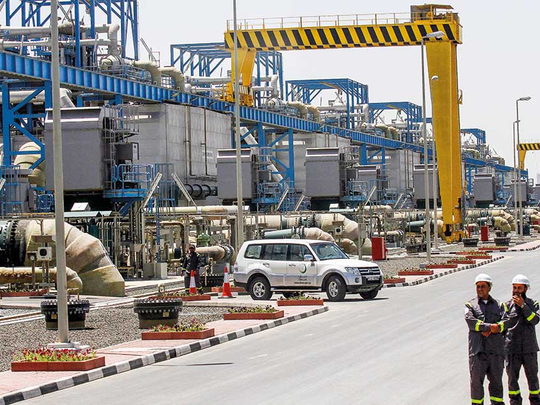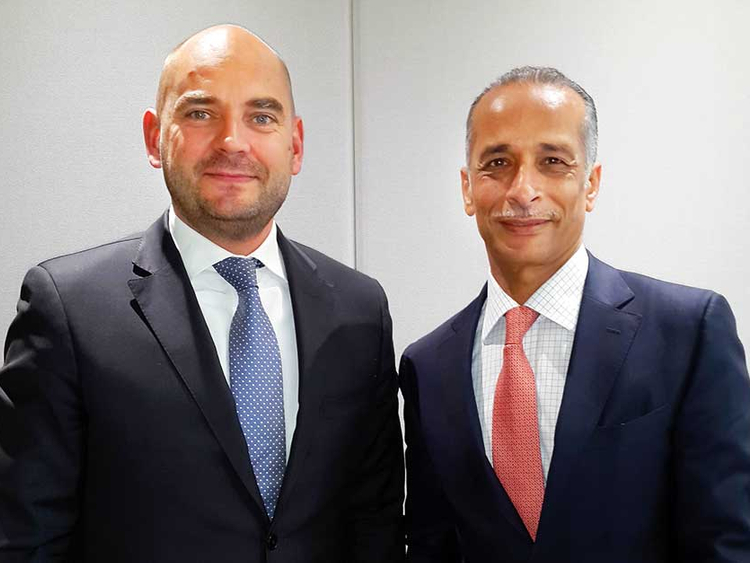
Dubai: Individual investors are going where Middle East institutions and sovereign wealth funds fear to tread, according to Pictet Asset Management.
The Swiss firm, which marked the 10th anniversary of its Dubai presence on July 10, says smaller investors are far more likely to choose its theme-based investment portfolios, based on 14 “megatrends” the firm has identified as growth drivers, than larger bodies.
Part of the problem in attracting institutions is that the themes’ performance cannot be rated by standard indices.
“Thematic investing is not sector investing,” said Alexandre Mouthon, Pictet’s Senior Product Specialist for Thematic Equities, in an interview conducted in May at the firm’s regional office at Dubai International Finance Centre. “All of these funds, all of these strategies, are investing across different MSCI sectors, so it’s a much more diversified way to invest than investing in sectors.”
Mouthon stressed the themes were chosen for long-term potential by Pictet and the independent Copenhagen Institute for Future Studies. “All these products have in common that they are benefiting from circular cause drivers that we call megatrends.”
These underlying megatrends — Pictet identifies 14 of them — each affect several of the firm’s investment themes. An example he cites is demographics: population growth, and an ageing population, will drive demand for clean water, health care and agricultural development. The development of new technologies will impact robotics, security and digital communication. The firm continues to monitor megatrends and assess their impact on existing investment themes and to highlight new thematic possibilities.
Water
In 2000, Pictet decided that water was a theme worth investing in. “The world is not lacking water. It’s just lacking drinkable water, and lacking the means to have the quantity of drinkable water at the right place and at the right time.
“We were convinced back in 2000 that water may be a good investment theme going forward because it will benefit from billions of US dollars of investment year after year either to maintain the current infrastructure and to develop new ones in emerging markets.”
Twenty months ago, Pictet opened robotics as a new investment theme, timing Mouthon described as being “slightly ahead of the curve”.
“We are long-term investors, and we intend to develop investment opportunities for at least the next 15, 20 years. That’s the way we look at thematic investing,” he said.
Each theme operates with at least two investment managers, and focuses on a pool of 200 to 300 firms in the field. “We are effectively focused investment managers, highly specialised investment managers looking at a small number of companies.”
Response
Jamal Al Naif, Pictet’s Regional Head for the Middle East, Africa and Central Asia, said this type of investment appealed much more to smaller investors, rather institutions or sovereign wealth funds, which focused more on equities where they could measure their performance against the MSCI World Index. “They don’t drill down specific thematic investment. Yet.
“Slowly it’s filtering through. Slowly we’re getting some response, but it takes a long track record to do that and a long consistency of approach in management to prove that you’re true to what you’re saying in purity of the themes and so on. Not just talking the talk, but walking the walk.”
The dominance of retail investors in the portfolios shows “that we still need to educate institutional investors about the advantages of thematic investing,” Mouthon added.
“There are some short-term market combinations under which you will underperform, but over the long term these are just amazing themes.”
Factbox: Pictet’s regional outlook
Jamal Al Naif, Pictet’s Regional Head for the Middle East, Africa and Central Asia, said the region was still in a consolidation phase, but the outlook was improving as oil prices stabilised in the $45-55 (Dh165-202) range and Gulf countries efforts to curb costs took effect.
“Last year was a tough year,” he said. “It was a tough year for all asset managers covering the institutional space because the region was predominantly in redemption mode, looking for liquidity. So like everybody else we suffered, to the tune of 25 to 30 per cent of our assets undermanagement, which was unfortunate but not unexpected.
“We’ve seen a very good start to 2017, so we’re hopeful that as a region we’ve stabilised.”
He added, “A lot has happened to bring the budget break-even price down from $90, $95 down to somewhere between $50 to $65 for the region, depending on which country you’re looking at. A couple of countries, I think, will end up in budget surplus just because they’ve cut that much spending.”
For Pictet, he said, “I don’t want to commit to growth at this stage. We want to hold our own, grow the business slowly on the institution side, and then as we see that growth, as our margins look positive, then we can look for various growth areas.”
Pictet also operates in wholesale investment, intermediaries operating off Pictet’s platform, largely catering to expatriates looking to invest in their future. In this area, Al Naif, said Pictet had seen “steady but not spectacular” growth in assets under management of 6 to 10 per cent. “In the least year, year and a half we’ve made a significant effort to push ourselves into that community,” he said.
Factbox: Pictet’s megatrend-driven investment themes
Health
Agriculture
Timber
Clean Energy
Water
Premium Brands
Digital Communication
Security
Robotics
A 10th theme, Biotech, is in development













